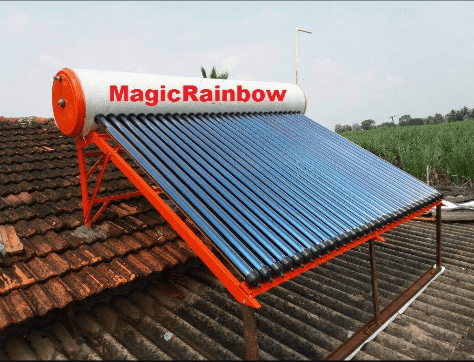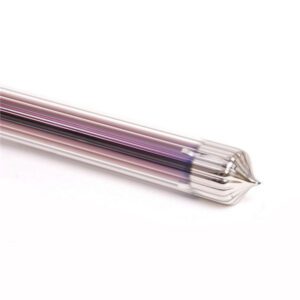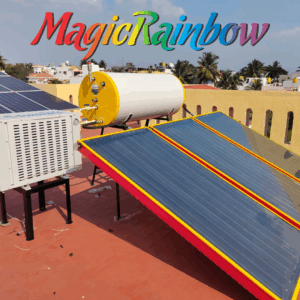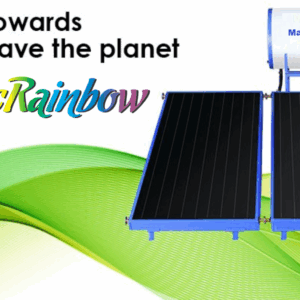Description
5000 LPD Solar Water Heater
A comprehensive overview 5000 LPD Solar Water Heater
1. Types
- Flat Plate Collectors (FPC): These systems utilize flat, insulated metal boxes with dark-colored absorber plates to collect solar energy. They are known for their durability and efficiency.
- Evacuated Tube Collectors (ETC): These systems consist of multiple transparent glass tubes containing heat-absorbing material. ETCs are generally more affordable but potentially less efficient and more fragile than FPC systems.
- Environmental Friendliness: Reduced reliance on fossil fuels and lower carbon footprint.
- Cost-Effectiveness: Significantly lower electricity bills as sunlight is a free and readily available energy source.
- Long-Term Reliability: Designed to last for many years (20-25 years), surpassing the lifespan of traditional water heaters.
- Reduced Maintenance: Fewer moving parts minimize the risk of mechanical failure and require minimal upkeep.
- Works on Cloudy Days: Well-insulated tanks can retain heat for 3-4 days.
- Power Outage Resilience: Provides hot water even during power cuts.
- Site Assessment: Choose a location with ample, unobstructed sunlight throughout the day.
- Collector Mounting: Install collectors on the roof or ground, optimally facing south for maximum sun exposure.
- Connecting Collectors & Tank: Use insulated pipes to connect collectors to the storage tank, ensuring tight seals.
- Storage Tank Placement: Locate the tank near the collectors to minimize heat loss and insulate it for optimal energy retention.
- Circulation System: Install a circulation pump connecting the collectors and storage tank, testing for proper water flow.
- Plumbing Integration: Connect the solar water heater system to the building’s existing hot water plumbing.
- Testing & Commissioning: Verify proper functioning, including leak checks, circulation, and hot water output.
- Government Subsidy: Check for available subsidies, as these can help offset the initial investment only on Solar Rooftop Plant
- Space Requirements: Typically requires 3-4 square meters of shadow-free area per 100 LPD system.
- Maintenance: Periodic inspections and cleaning are recommended, especially in areas with hard water.




